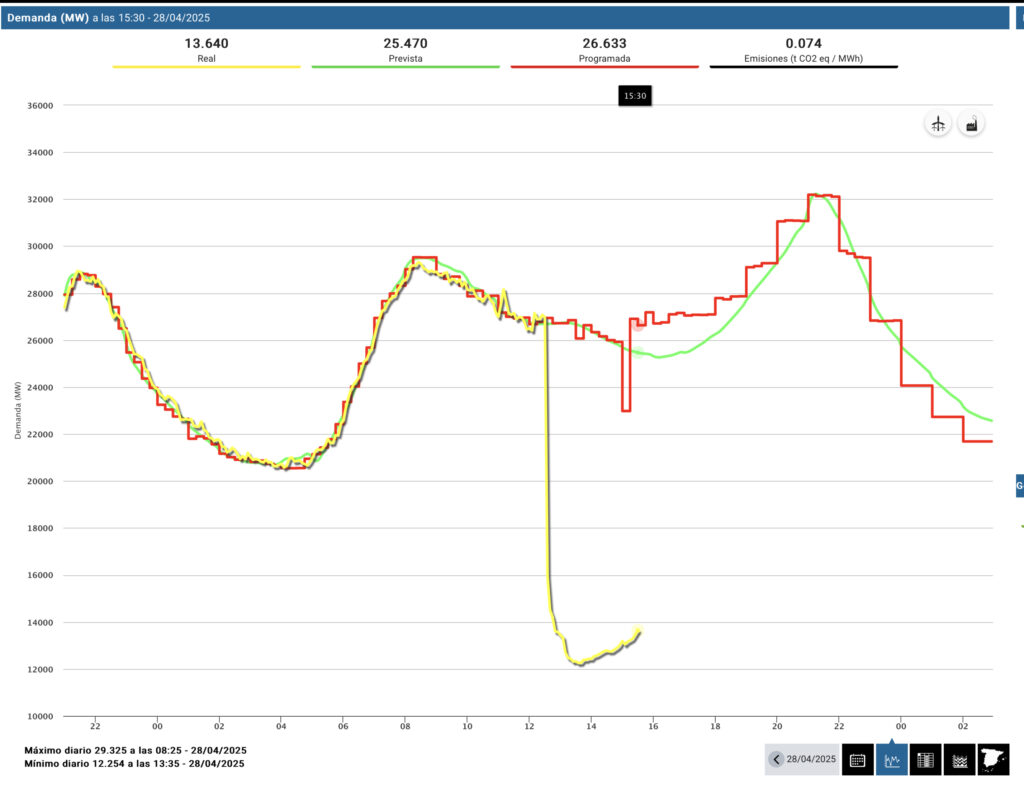-
 chevron_right
chevron_right
Massive power outage in Spain, Portugal leaves millions in dark
news.movim.eu / ArsTechnica • 28 April • 1 minute
National grid operators in Spain and Portugal confirm that a massive electrical blackout has hit the Iberian Peninsula today, starting just a couple of minutes after 12:30 pm Central European Summer Time (10:30 am UTC, or about 6:30 am US Eastern Daylight Time). The outage appears to have resulted in near-total loss of electricity in Spain, Portugal, the Principality of Andorra , and at least some portions of southeast France.
The impacts are widespread and pervasive; in major cities like Madrid, trains are not running , airports are unable to operate , and businesses and schools have closed. Citizens are still able to use cellular networks to communicate so far (most cell towers and network operations centers have battery or generator backup systems).
 Electrical demand curve from Red Eléctrica site showing the outage.
Credit:
Red Eléctrica
Electrical demand curve from Red Eléctrica site showing the outage.
Credit:
Red Eléctrica
Bloomberg energy reporter Akshat Rathi posted on Bluesky that Spanish grid operator Red Electrica claims the outage is due to " grid oscillation ," a phenomenon that occurs when the system is unable to suppress oscillations that normally happen as sources and load enter and leave the system. Rathi quotes Bloomberg cybersecurity reporter Ryan Gallagher , noting that a cyber attack has been ruled out, and the fault is likely technical:


